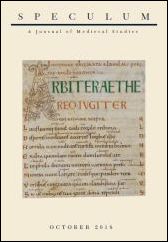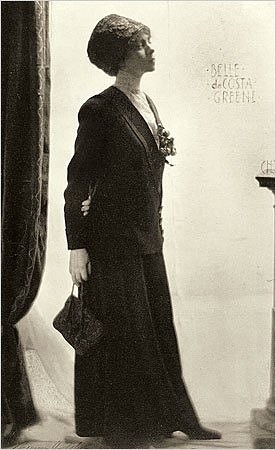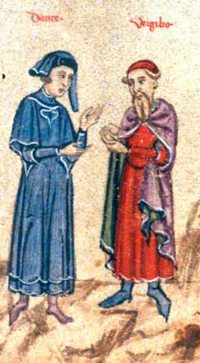To the Members of the Medieval Academy,
Voting in the Medieval Academy governance election is one of the most important means that members have to impact both the Academy and the future of medieval studies in North America. I am very pleased to announce the names of the Medieval Academy members who have generously agreed to stand for election to office in 2019:
President:
Ruth Mazo Karras (History, Trinity College Dublin)
1st-VP:
Renate Blumenfeld-Kosinski (French, Univ. of Pittsburgh)
2nd-VP:
Thomas E. A. Dale (Art History, Univ. of Wisconsin)
Councillors (four seats available):
Lynda Coon (History, Univ. of Arkansas)
Hussein Fancy (History, Univ. of Michigan)
Fiona Griffiths (History, Stanford Univ.)
Elizabeth Papp Kamali (Law, Harvard Law School)
Adam J. Kosto (History, Columbia Univ.)
Karl Kügle (Musicology, Univ. of Oxford/Utrecht Univ.)
Anne Latowsky (French/Latin, Univ. of South Florida)
Catherine M. Mooney (Theology, Boston College)
Nominating Committee (two seats available):
Stephen Jaeger (German Lit., Emeritus, Univ. of Illinois Champaign-Urbana)
Kathy Lavezzo (English Literature, Univ. of Iowa)
Ann Marie Rasmussen (German and Slavic Studies, Univ. of Waterloo)
Sif Rikhardsdottir (Comparative Literature, Univ. of Iceland)
In addition to biographical information, each candidate has submitted a statement detailing their vision for the Academy and their reasons for wanting to participate in its governance. It is our hope that these statements will assist members in making informed choices about the governance of the Medieval Academy. These statements are online here:
https://www.medievalacademy.org/page/2019Ballot
There are eight candidates for four openings on the Council, the governing body of the Academy. There are four candidates for two openings on the Nominating Committee, tasked with proposing candidates for the annual Council and Officers’ election. As is our practice, the slate of three Presidential Officers is presented unopposed, although nominations by petition may be made as follows, in accordance with article 26 of the By-Laws:
Nominations of other members of the Academy for elected officers, Councillors, or members of the Nominating Committee may be made by written petition signed by at least seven members of the Academy. A nomination by petition may be for a single office, several offices, or an entire slate. Such petitions must be received by the Executive Director within twenty days of the circulation of the report of the Nominating Committee (article 25), unless the Council extends the period for making nominations by petition.
As the slate of candidates is being announced on 25 September, the closing date for nomination by petition has been set at 11:59 PM, 14 October 2018. Additional information about the governance of the Academy can be found on our FAQ page: http://medievalacademy.site-ym.com/page/FAQ
My thanks to the 2019 Nominating Committee for their work in establishing the slate of Council candidates: Ken Pennington (Chair), Robin Fleming, Bernice Kaczynski, Susan Kramer, and Catherine Saucier. My thanks as well to President David Wallace for proposing the slate of Nominating Committee candidates.
Electronic balloting will open on 16 October. If you would prefer to receive a paper ballot and have not received one in the past, please contact me at LFD@TheMedievalAcademy.org.
Please vote and let your voice be heard. I look forward to your participation in the election of the leadership of the Medieval Academy of America.
– Lisa Fagin Davis, Executive Director

 The end of the year is fast approaching, and it is time to renew your membership in the Medieval Academy of America. You must be a member in good standing to apply for grants and fellowships given out by the Academy, to speak at the Medieval Academy Annual Meeting, or to participate in its governance.
The end of the year is fast approaching, and it is time to renew your membership in the Medieval Academy of America. You must be a member in good standing to apply for grants and fellowships given out by the Academy, to speak at the Medieval Academy Annual Meeting, or to participate in its governance. The latest issue of Speculum is now available on the University of Chicago Press Journals website.
The latest issue of Speculum is now available on the University of Chicago Press Journals website. Applications are now being accepted for the inaugural
Applications are now being accepted for the inaugural 


